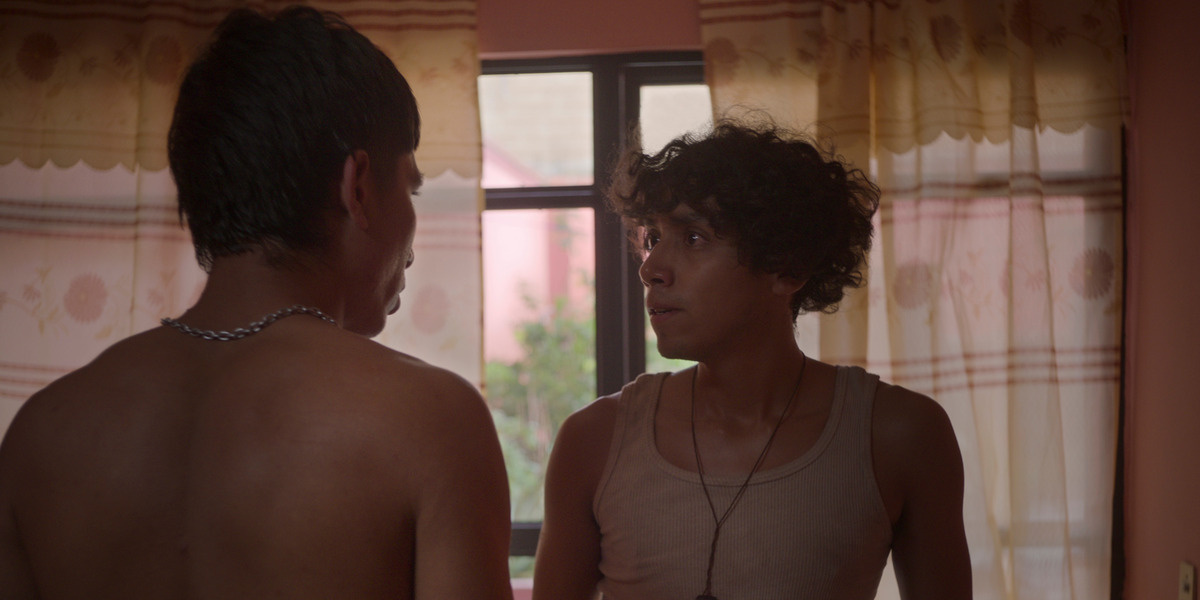Netflix’s Hurricane Season Is Based on a Realistic Mexican Novel
Netflix’s ‘Hurricane Season’ is marked with a gritty realism as it explores a myriad of themes that are almost an indistinguishable reflection of the reality of small Mexican towns. Directed by Elisa Miller, the Mexican thriller film tells the story of individuals in the small town of La Matosa where the murder of the Witch, a divisive…
Netflix’s ‘Hurricane Season’ is marked with a gritty realism as it explores a myriad of themes that are almost an indistinguishable reflection of the reality of small Mexican towns. Directed by Elisa Miller, the Mexican thriller film tells the story of individuals in the small town of La Matosa where the murder of the Witch, a divisive figure among the locals, is murdered under mysterious circumstances. It also tackles sensitive subjects such as homosexuality, violence, and the perils of adolescents in an unsupervised community. Therefore, viewers must be curious to discover whether the headline-worthy premise is actually inspired by real events.
The Inspiration Behind Hurricane Season
‘Hurricane Season’ is not based on a true story. The film is an adaptation of Mexican author Fernanda Melchor’s book ‘Temporada de Huracanes,’ which was released in 2017. The book was translated into English by Sophie Hughes and released in 2020. However, the basic concept of the novel was devised by Melchor from a real-life incident. According to the author, she first wanted to write a non-fiction, investigative book about the murder of an alleged Witch. The incident occurred in the small town of Veracruz, where a woman was murdered by her ex-lover, who alleged the woman was bewitching him. The woman’s mutilated body was found floating in a nearby river.

Initially, Melchor planned on traveling to Veracruz to research the incident and wanted to write a true-crime book inspired by Truman Capote’s 1996 non-fiction book ‘In Cold Blood.’ However, she soon abandoned the idea due to safety concerns. Instead, Melchor used the incident to formulate a frictional story that explores the culture in a town like Veracruz and examines the root of violence in a small community. While the original concept was derived from the real-life incident, Melchor also drew inspiration from personal experiences while crafting the story. Melchor stated that the fictional town of La Matosa, where the story takes place, is inspired by several locations she visited.
The town also serves as a metaphor for a dysfunctional family, and Melchor derived from her own family background while writing the story. “But it’s true that during my adolescence, I went through bad times in my family life, and that’s why I like to talk about young characters trapped in places that seem to have no future, where nobody cares about them, where their parents are abusive or where their parents are themselves like children who need to be looked after. That is, for me, a metaphor for growing up in a dysfunctional family, so of course, there is catharsis,” Melchor stated in an interview with LALT.
Apart from the real-life inspiration, Melchor also drew from several fiction works. In an interview with Punch Magazine, Melchor cited books by authors such as Cormac McCarthy, William Burroughs, and A.M. Homes as inspirations behind the novel. Furthermore, the author also stated that films of directors Larry Clark and David Lynch informed her depiction of beauty and sordidness in the book. In the same interview, Melchor also highlighted femicide as the primary theme of the novel. “In fact, my original intention was to be a little bit sarcastic because the novel is about femicide, the killing of women not only due to hate but also fear, a sort of immature, disproportionate rebellion against the perceived power of women, and nothing beautiful could actually be born from that,” Melchor said.
All things said, ‘Hurricane Season’ is not directly based on a true story. It is a mostly faithful adaptation of Fernanda Melchor’s book, which explores the microcosms of a violent act that affects not only individuals but also an entire community. The story is partly inspired by a real event, with Melchor’s real-life experiences and fictional influences interspersed across the narrative that highlights the influence of drugs, sex, and alcohol in a small community while providing poignant social commentary about homosexuality, feminism, and distrust. As a result, the story is extremely grounded and exudes an uncanny sense of realism with respect to life in a small Mexican town.
